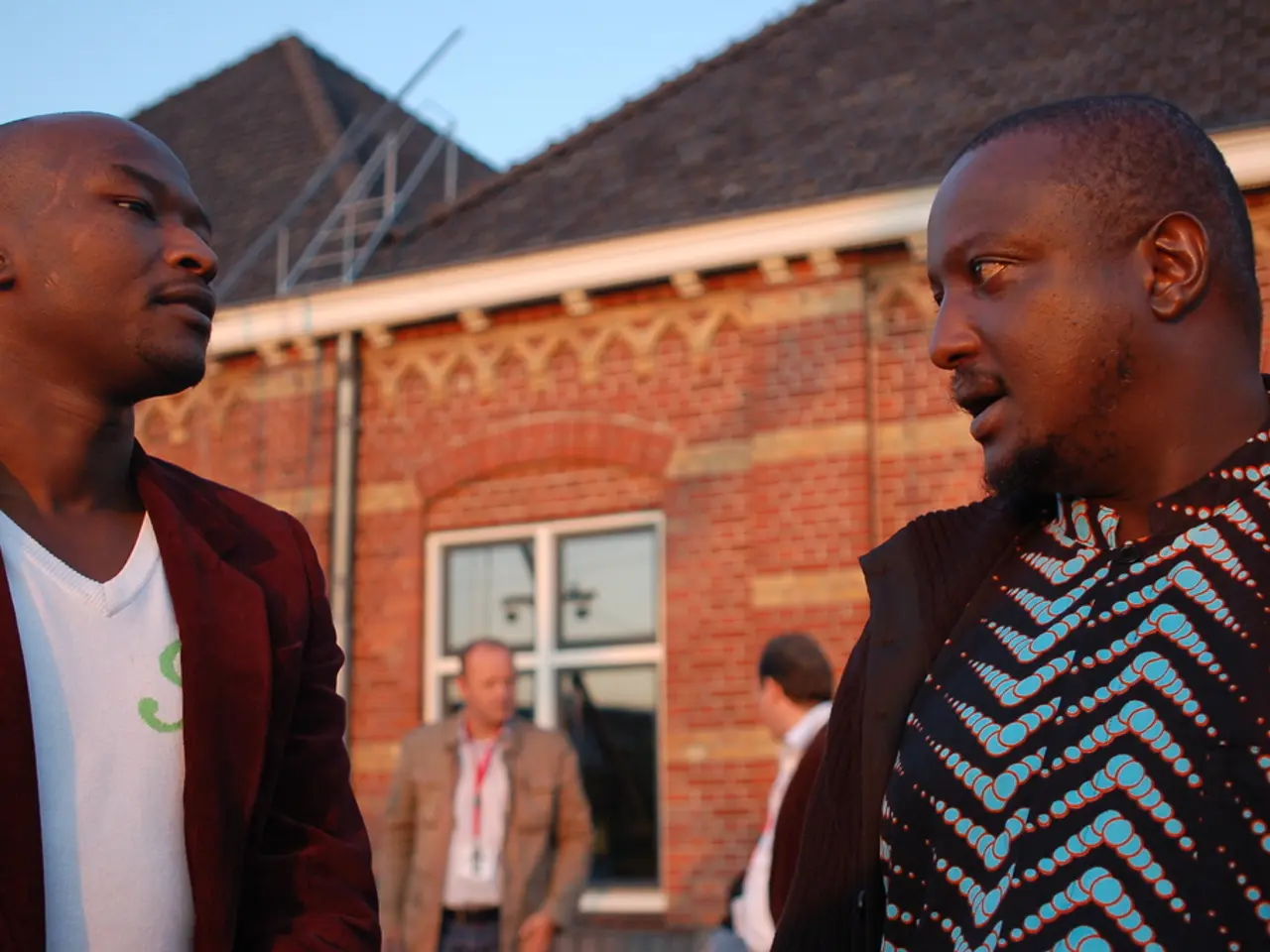Leading Africans Shaping Worldwide Positions by 2025
In a significant milestone, the African Union (AU) was admitted as a permanent member of the G20 on September 9, 2023. This recognition marks a new era for Africa, as it continues to make a global impact across various fields.
Tidjane Thiam, a Board Member of Kering and the African Union Special Envoy on COVID-19, is utilising his financial expertise to mobilise resources for combating the pandemic in Africa. His efforts are a testament to the continent's determination to overcome the challenges posed by the pandemic.
Dr Tedros Adhanom Ghebreyesus, the Director-General of the World Health Organization (WHO), is navigating global health challenges, including the COVID-19 pandemic, and strengthening health systems worldwide. Under his leadership, the WHO has made significant strides, such as progress against diseases like HIV/AIDS, malaria, and tuberculosis, and responding effectively to the COVID-19 pandemic.
African leaders are making waves globally, championing causes such as equitable vaccine distribution during the COVID-19 pandemic, climate justice, reforms in global trade regulations, and strides in renewable energy, cultural collaborations, and economic growth.
In the political arena, Kemi Badenoch made history as the first black woman to lead a major UK political party when she became the Leader of the Conservative Party in 2023. Despite Conservative losses in the 2025 local elections, she continues to lead the party and advocate for conservative policies, including a strict immigration cap and opposition to certain environmental measures.
The BRICS association welcomed Egypt and Ethiopia as new members a few weeks after the AU was admitted to the G20. This move further solidifies Africa's position on the global stage.
Dr Akinwumi Adesina, the President of the African Development Bank (AfDB), is promoting sustainable economic growth and reducing poverty in Africa through initiatives in agriculture, infrastructure, and energy sectors. His efforts are crucial in driving Africa's economic development.
Experts attribute Africa's global recognition to its economic growth, achievements of Africans in global positions, and their impact on the international stage. This recognition is further highlighted by the appointment of Dr Ngozi Okonjo-Iweala as the first woman and first African to become the Director-General of the World Trade Organization (WTO). She is focusing on reforming trade rules, addressing global supply chain issues, and promoting fair trade practices to benefit developing nations.
Phumzile Mlambo-Ngcuka, the Chancellor of the University of Johannesburg, and Dr Ibrahim Assane Mayaki, the CEO of the African Union Development Agency (AUDA-NEPAD), are working tirelessly to enhance Africa's economic growth and sustainable development. Meanwhile, Dr Vera Songwe, the Under-Secretary-General of the United Nations and the Executive Secretary of the Economic Commission for Africa (ECA), is advocating for sustainable development, economic diversification, and digital transformation.
Wavel Ramkalawan, the Chairperson of the Alliance of Small Island States (AOSIS), is amplifying the concerns of small island nations regarding climate change, leading to more robust international agreements and increased funding for climate resilience.
Kirsty Coventry, an executive member and a candidate for President of the International Olympic Committee (IOC), is advocating for athletes' welfare and zero tolerance for corruption. Her efforts are crucial in ensuring the integrity and fairness of global sporting events.
The United Nations reported in 2024 that there are around 200 million people in the Americas who identify as being of African descent. This statistic underscores the significant African diaspora and its influence on global cultures and societies.
In conclusion, Africa's global recognition is a testament to its economic growth, the achievements of its leaders in global positions, and the impact they are making on the international stage. As these leaders continue to advocate for their causes, Africa's influence is set to grow even further.
Read also:
- Lu Shiow-yen's Challenging Position as Chair of the Chinese Nationalist Party (KMT) Under Scrutiny in Donovan's Analysis
- Federalist Society Deserves Appreciation from Trump for Influence on Judiciary
- EU Set to Make Decisions Regarding Georgia's Future
- Government will initiate the second phase of combined inoculation in 11 states deemed high-risk, scheduled from September 11 to 14.








